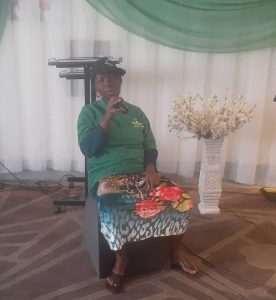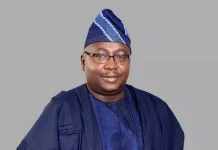
By Ibukun Emiola
Stakeholders have commended the Federal Government for its NG-CARES programme aimed at improving the livelihood of poor Nigerians.
The stakeholders, including implementing agencies drawn from seven states, gave the commendation in Ibadan at a maiden Ministerial Town Hall meeting for beneficiaries from Oyo, Osun, Ondo, Ogun, Ekiti, Lagos and Kwara States.
The town hall meeting was organised by the Federal Ministry of Finance, Budget and National Planning.
The stakeholders, who took turn to make presentations on how the programme had empowered them economically and improved their socio-economic wellbeing, called for its extension.
One of the beneficiaries, Mrs Beatrice Ogunsuyi, a widow from Ondo State, who benefited from the healthcare provision under the initiative, said it was the needed intervention appropriate for her situation.
Mrs Rachel Onapasa from Obokun Local Government Area of Osun, who lost her source of livelihood as a poultry farmer during the COVID-19 pandemic, said she regained her stability with the intervention of the Federal Government.
“I was provided with a carton of broiler with feed, which helped to regain my livelihood,”Onapasa said.
Mrs Subaidan Rasak, a physically challenged beneficiary from Oyo State, said she received government support, in spite of her condition, which had confined her to be indoor.
Rasak said the monthly social transfer received from government had improved her living conditions and helped in taking care of her family.
Chief Dipe Adegboye on behalf of Moferere-Iju community in Akure North Local Government Area of Ondo State, said the dilapidated science laboratory and Basic Health Care Centre in the community had been reconstructed and equipped with state-of-the-art facility.
“All these were achieved through the NG-CARES community development programme, making students, who could not take subjects in sciences are now doing well,” Adegboye said.
Other beneficiaries, who were unemployed, artisans, cattle rearers and petty traders, also attested to the positive impact of the NG-CARES in their various businesses.
They appealed for extension of the programmes and its scope to accommodate more beneficiaries.
The Minister of State for Budget and National Planning, Prince Clem Agba, commended President Muhammadu Buhari for his vision to lift 100 million Nigerians out of poverty within a period of 10 years.
Agba, who was represented by Mr Aso Vakporaye, Chairman, Federal CARES Technical Committee of the Nigeria COVID-19 Action Recovery and Economic Stimulus Programme, commended the partners for making the initiative a success.
Speaking in his capacity, Vakporaye said the hardships during the COVID-19 pandemic made the Federal Government develop the Economic Sustainability Plan.
This, he added, inspired the preparation and eventual implementation of the NG- CARES Programme in the 36 States and FCT.
“We are proud to say that the Programme has recorded tangible results and has positively affected so many poor and vulnerable Nigerians affected by the COVID-19 pandemic and other shocks across the country,” Vakporaye said.
The World Bank representative and Task Team-lead, Prof. Foluso Okumadewa, commended the commitment and courage put into the initiative by various states and executors in various programmes which had yielded positive results.
Okumadewa announced that the World Bank had extended the programme for 12 months, calling for registration of more Nigerians below the poverty line as well as extend support to the poor in every area needed.
The National Coordinator, NG-CARES, Dr Abdulkarim Obaje, said the programme was a multi-sectoral programme designed to provide immediate emergency relief to the vulnerable and poor Nigerians, smallholder farmers and SMEs that were adversely affected by the COVID-19.
Obaje said the programme covered three results areas with 11 Disbursement Linked Indicators interventions which were selected by the states.
“On the state and FCT Performance in 1ˢᵗ Result Verification; 29 states and FCT earned reimbursement after deducting the initial advance, while seven states earned no reimbursement after deducting the initial advance,” he said. (NAN)



